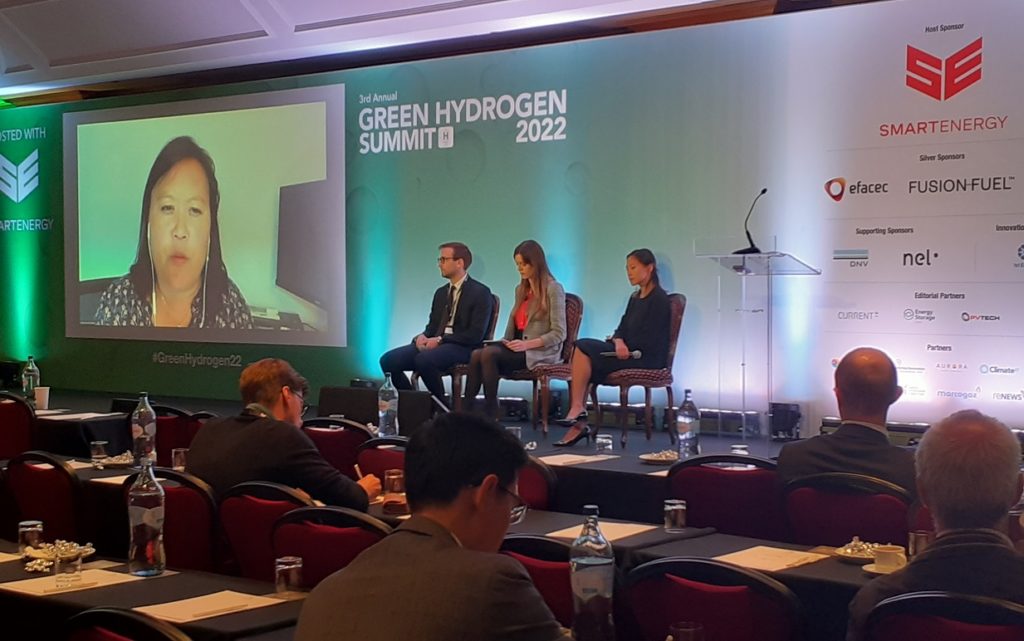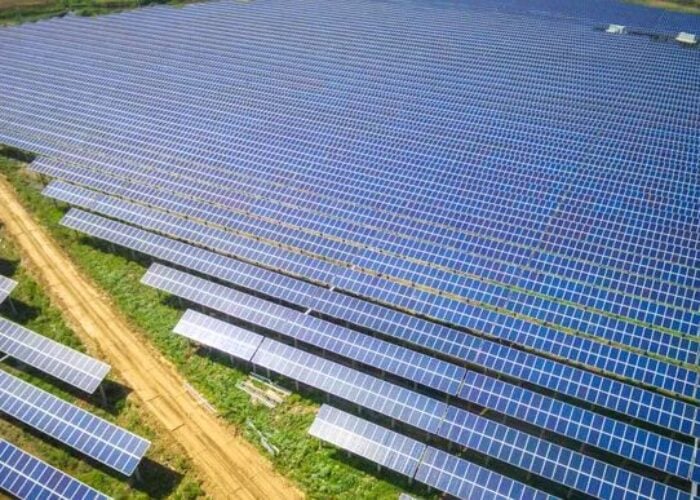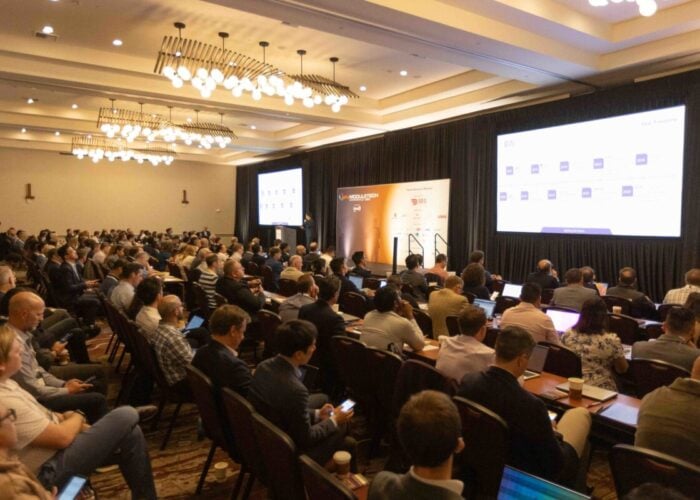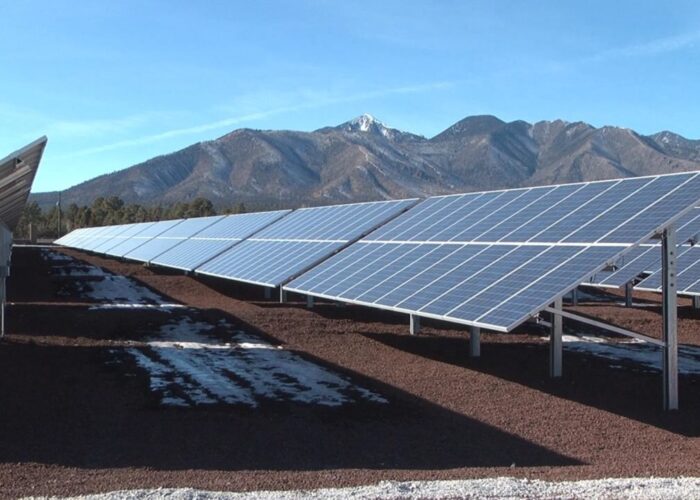
Additional subsidies to support the production of green hydrogen are being requested by industry players looking to set up bankable H2 projects.
Speaking during a panel discussion at this week’s Green Hydrogen Summit 2022, Anise Ganbold, research leader for commodities and hydrogen at consultancy Aurora Energy Research, said there are only four countries in Europe that have announced and provided rules for green hydrogen opex subsidies: the UK, the Netherlands, Germany and Denmark.
Unlock unlimited access for 12 whole months of distinctive global analysis
Photovoltaics International is now included.
- Regular insight and analysis of the industry’s biggest developments
- In-depth interviews with the industry’s leading figures
- Unlimited digital access to the PV Tech Power journal catalogue
- Unlimited digital access to the Photovoltaics International journal catalogue
- Access to more than 1,000 technical papers
- Discounts on Solar Media’s portfolio of events, in-person and virtual
Ganbold said that while there is “plenty of money to go around” for capex for projects across the hydrogen value chain, there is a lot of demand for opex funding.
“When we speak to our clients, they say, ‘Yes, we have this capex subsidy, but what we’re waiting for and what we’re waiting for more clarity for is the opex subsidies, and that’s what we really need in order to go get financing in order to be bankable,’” she said during the summit, hosted by PV Tech publisher Solar Media in Lisbon.
In the UK, the government launched a public consultation last year on a preferred hydrogen business model, which would be built on a similar premise to the country’s offshore wind contracts for difference scheme. This model is designed to overcome the cost gap between low carbon hydrogen and fossil fuels.
Ganbold expects that a lot of companies are gearing up to take part in the UK’s subsidy scheme but said “it’s very tricky for governments to set up a revenue support scheme for such a new market”.
She added that getting the market for offtakers “is probably one of the most important things because right now there is no market for green hydrogen, it’s very expensive compared to a lot of the incumbents.
“You’ll need to have a subsidy that will help bridge the gap for the consumers in order to have the incentive to switch to clean hydrogen. So we need to have subsidies on the demand side as well.”
The scale of hydrogen financing needed in the coming years was revealed in research published last year by industry group the Hydrogen Council, which found that all the hydrogen projects announced globally as of early 2021 will require total investments of more than US$300 billion by 2030.
Detailing the challenges of financing green hydrogen projects, Hyung-Ja de Zeeuw, senior corporate credit strategist at Rabobank, said it is necessary to factor in the creditworthiness of both the electricity suppliers that power green hydrogen plants as well as offtakers.
It might also be necessary to look at the creditworthiness of system providers. “But until now, there haven’t been so many systems that’s operational that we are sure that it actually works, so that’s another risk,” de Zeeuw said.
“If you look, in all honesty, at the moment, at where we are with green hydrogen projects, the risks are still very high.”







